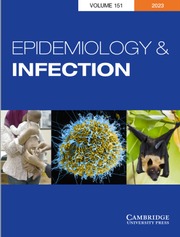Article contents
Further Remarks on the Production of a Malarial from of South African Horse-Sickness
Published online by Cambridge University Press: 15 May 2009
Extract
The conclusions I seek to draw from this part of my investigations are:—
1. That a malarial form of horse-sickness probably occurs naturally.
2. That when animals which are either naturally relatively susceptible, such as the donkey, ox, and goat, or animals which have acquired protection, e.g. “salted” horses, are inoculated with virulent horse-sickness blood, their blood conveys a modified infection of horse-sickness which is malarial in type.
3. That this malarial from is associated with the presence of parasites within the red corpuscles of the blood of the infected animal.
4. That the blood of “salted” horse which have been previously regularly inoculated during several months is of a dangerous order of virulence. Vide former experiments.
5. That the blood of “salted” horses which have only been once inoculated after several months' rest conveys a fairly severe fever.
6. That the blood of “salted” horses, which have not been inoculated for even a year, can still convey infection.
7. That “unsalted” horses which have been inoculated a year previously with “salted” blood convey only a week infection.
8. That a severe attack of malarial horse-sickness gives a considerable degree of protection against subsequent inoculation with “salted” blood.
9. That when regularly inoculated “salted” horses are used to produce blood giving severe fever, such fever may become so severe as to cause death with symptoms of horse-sickness.
10. That the blood of the latter animals which die can produce virulent horse-sickness in clean horses, if used in a considerable dose, i.e. 20 c.c.
- Type
- Research Article
- Information
- Copyright
- Copyright © Cambridge University Press 1904
References
page 11 note 1 Proc. Royal Society.
page 15 note 1 Report of the Principal Veterinary Surgeon to the Forces to General Viscount Wolseley, Adjutant-General, 27th October, 1888.
- 2
- Cited by




